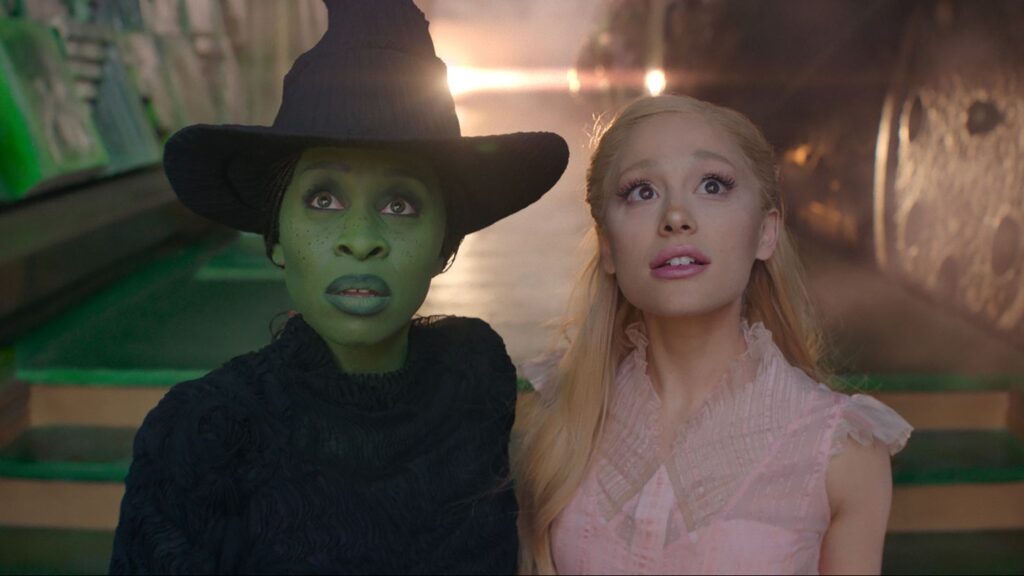
At the risk of defying Julie Andrews, let’s start at the ending. Well, it’s really the middle, given that Wicked—Jon M. Chu’s big-screen adaptation of the hit play by Winnie Holzman and Stephen Schwartz, which in turn was based on a novel by Gregory Maguire—has been split into two parts, with the second installment slated to arrive next November. (Lest unsuspecting viewers be startled by this division, the label “Part 1” appears beneath the opening title.) Anyway, shortly before this movie’s intermission conclusion, several of the characters survey architectural blueprints for a planned renovation of Oz, including a certain brick road of indeterminate color. “You don’t like yellow?” the engineer asks. He then magically toggles through a number of alternatives, the miniature boulevard shifting from blue to green to purple.
There’s a lot to process here. To begin with, the mastermind’s effortless manipulation of his punctilious model functions as an obvious metaphor for the role of film director—a visionary tasked with fabricating an environment and bending it to his artistic will. But my more pressing concern is the concept of color itself, and how Wicked dutifully traffics in pigmentation—there are a variety of shades and hues on display—without fully exploiting its power.
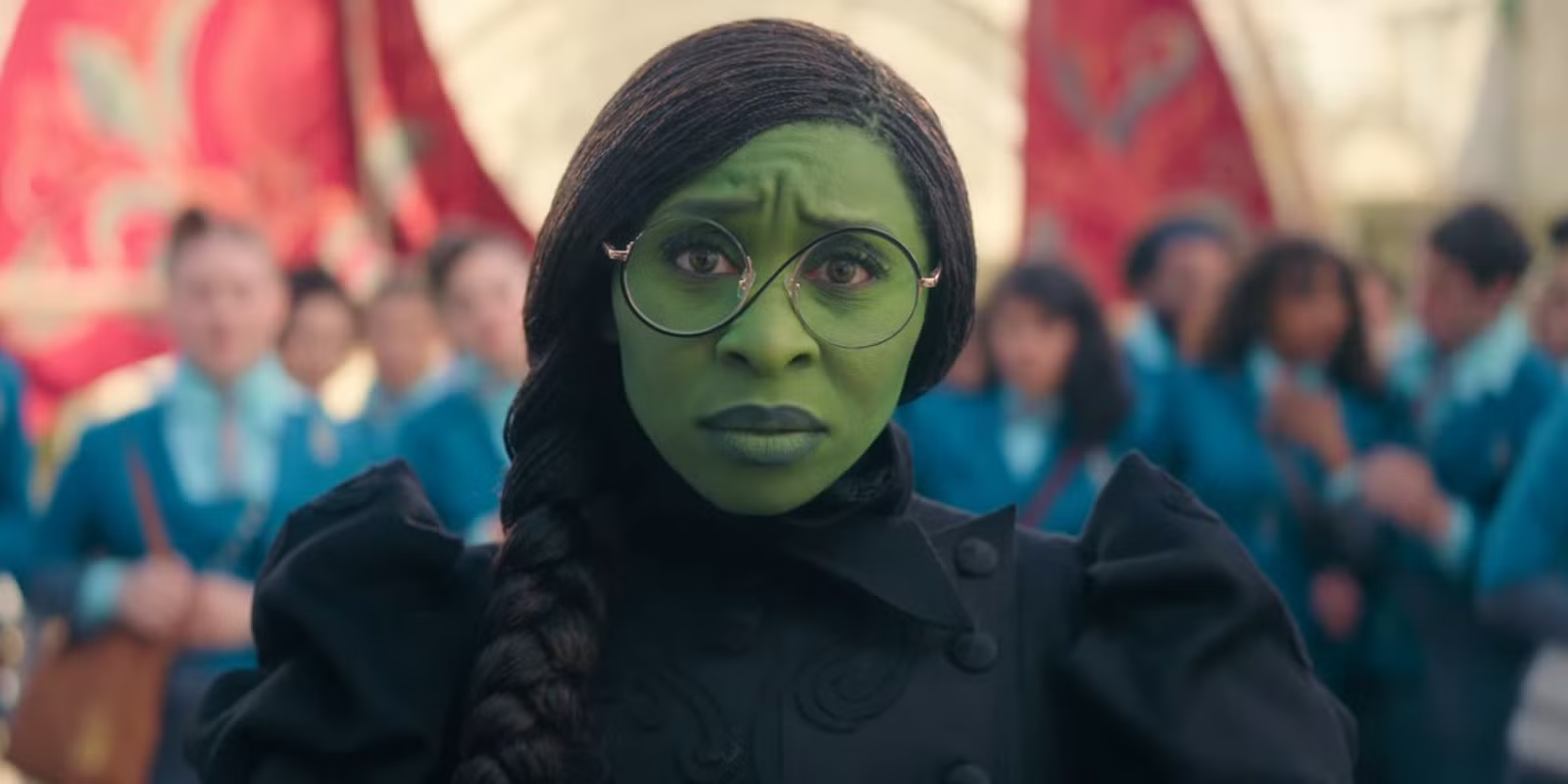
The heroine of Wicked, as you’re likely aware, has green skin. Another character’s vast wardrobe seems to consist entirely of pink. There is a black hat, an emerald city, and of course that yellow brick road. The movie does not lack for color.
Just not quite Technicolor. The film’s palette is variegated but also curiously muted and desaturated. This appears to be by design; in interviews, Chu has said that he wanted his version of Oz to look like “a real place.” That’s a dubious justification (do people really need to believe that Oz is, like, an actual hamlet in Missouri?), but regardless of intent, the visuals in Wicked don’t quite pop with that classical oomph, that vibrant razzmatazz. If it only had a rainbow!
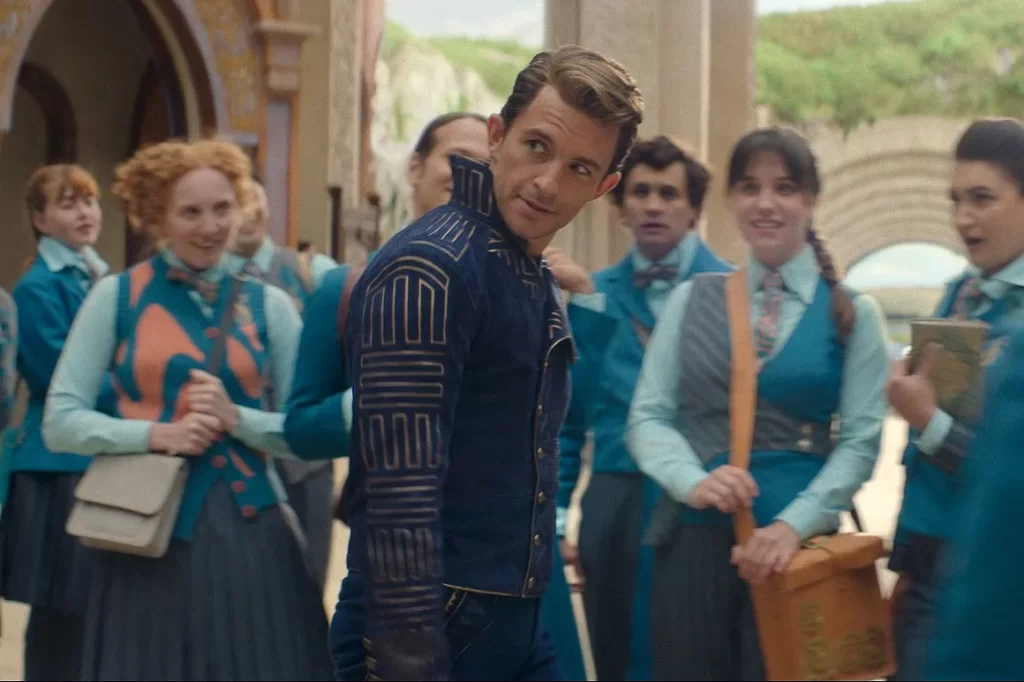
That said, as a piece of aesthetic craftsmanship, Wicked is an impressive achievement—maybe not singular, but confident and exacting. The production design, with its spires and staircases, is appropriately regal without being hectoring, while the camera moves are steady and unforced. As for the choreography, it is less imaginative than in Chu’s prior feature (the underrated In the Heights), but it is nonetheless lively and appealing, paying proper tribute to the Broadway show’s majestic music.
Which, presumably, is why you’re here. Like most cinematic adaptations of popular works, Wicked is both emboldened and inhibited by the assumed loyalty of its audience. Its status as a preordained blockbuster affords it inexhaustible resources, which are evident not only in its casting (Michelle Yeoh, Peter Dinklage, and Jeff Goldblum all have small parts) but also in its mighty construction (quibbles over the color scheme aside, this thing looks expensive). Yet it is also slightly tentative, as though it’s wary of expressing too much idiosyncrasy for fear of upsetting the many patrons who have arrived with the expectation of nodding approvingly at seeing their favorite numbers unfold on the big screen. (The original stars, Idina Menzel and Kristin Chenoweth, have cute cameos as grandstanding actors constantly trying to upstage one another.)
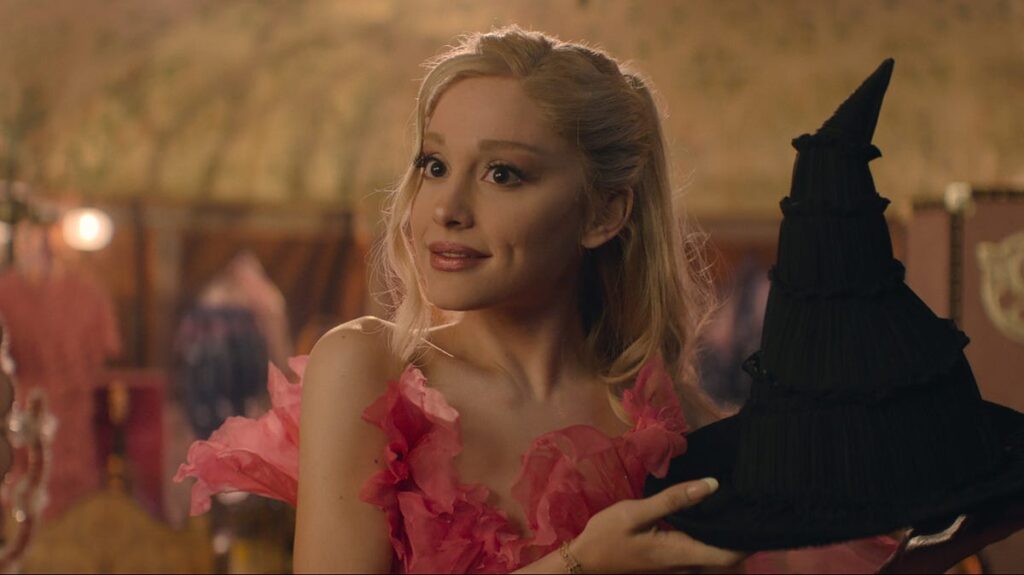
Or perhaps this sense of hesitation is baked into Wicked’s narrative, which in its boldest strokes is a supervillain origin story. Elphaba (Cynthia Erivo), not yet having gained notoriety as a westerly witch, is a precocious but testy collegian, one whose jade complexion has taught her about the cruelty of the world but has also rendered her cynical and lonely. Enrolled at Shiz University—technically she’s just there to supervise her sister, Nessarose (Marissa Bode), but her facility for impulsive magic catches the attention of the dean—she instantly clashes with Galinda (a terrific Ariana Grande-Butera), a queen bee whose effervescent popularity is in every way the opposite of Elphaba’s caustic insouciance. Beyond butting heads as roommates, these two young women will eventually be drawn into a hazily defined love triangle with Fiyero (Jonathan Bailey), a devil-may-care prince whom we first meet in the forest, having an animated but cheerful conversation with his horse.
About which: One of the many points in Wicked’s busy plot involves animals, who initially appear to be thriving in a pluralistic society (one of Shiz’s professors is a talking goat) but who soon become targets of a virulent discrimination campaign. As an allegory, this idea is decent but also oddly vague, conveying a trite message (let’s all get along!) without providing the necessary specificity—possibly because it’s wrestling for screen time with everything else going on. Among other things, Wicked resembles a high-school satire in the vein of Mean Girls, a fantastical adventure that recalls the early Harry Potter flicks, an empowering study of female friendship, and a troubling tale of political avarice and corruption. It’s a lot, and not all of the movie’s 160 minutes flow gracefully; certain scenes, like a school dance at a ballroom, take painfully long to transpire.
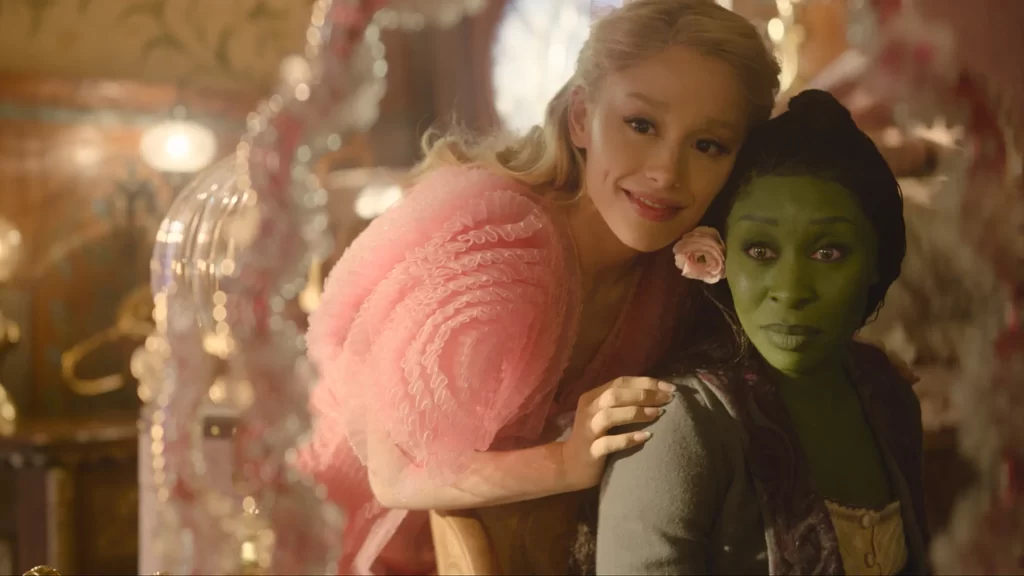
And yet: Who cares? Because above all else, Wicked is decidedly a musical—one that Chu shepherds with skill and enthusiasm. Not every song is a pure banger, but there is enough energy and variety to result in a cumulative sense of euphoria. “The Wizard and I,” in which Elphaba dreams of a utopian future working alongside Oz’s leader, is a suitably rousing ballad that contrasts nicely against “What Is This Feeling,” a buoyant duet of mutual antagonism that Chu playfully underlines via the use of split screen. Elphaba and Galinda’s shared derision gradually morphs into genuine affection on “Popular,” an irresistible ditty that treats us to the delights of a Clueless-style makeover. (For his part, Bailey’s Fiyero isn’t given a ton to do, but he’s the keystone of “Dancing Through Life,” which is most notable for Chu’s canny control of the film’s sets.) And then of course there is “Defying Gravity,” the inevitable and indomitable climax that overpowers its hoary traditions through sheer force of will and execution.
Erivo earns her paycheck with that number; she has a healthy set of pipes, and she knows how to modulate them for maximum impact. But the true star of Wicked is Grande-Butera. Acting in just her second feature role (following Don’t Look Up), she proves to be a nimble and vivacious comedienne, with exquisite timing and just the right touch of tenderness to complement her natural star power. Sure, Elphaba can bewitch a broomstick. But Galinda swinging her mane of golden hair round and round like the world’s most luminous flail? That’s when Wicked truly learns to fly.
Grade: B
Jeremy Beck is the editor-in-chief of MovieManifesto. He watches more movies and television than he probably should.
